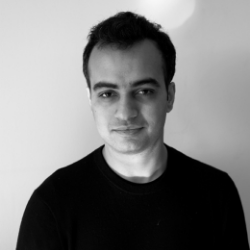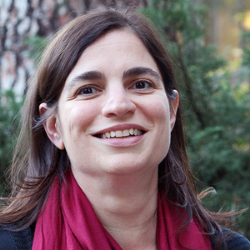The New Comparative Constitutional Law
Over the past two decades, the legal academy has witnessed a major revival in the study of comparative legal systems. This panel will focus on the different debates and themes that are involved in such study. For example, what are the major ways in which different democratic systems organize political powers? What are the variations in the means by which rights are protected? How might we compare democratic systems with non-democratic ones? What are some of the key similarities and differences that we presently find across different kinds of legal systems? The panel will reflect on both the possibilities and limitations of comparative research and the ways in which foreign and international research can inform our understanding of domestic legal systems.
This event is a part of Columbia Academy on Law in Global Affairs (CALGA), a series of online open-access events, in which Columbia Law School faculty present their research and debate current issues with colleagues from around the globe.
CALGA is cosponsored by Columbia Law School, the Parker School of Foreign and Comparative Law, The Committee on Global Thought, and Columbia | Global Centers.
About the Speakers

Benjamin L. Liebman leads Columbia Law School’s Hong Yen Chang Center for Chinese Legal Studies, the first institution of its kind at a U.S. law school. The center prepares students to take on leadership roles in Chinese law and provides them with the skills and knowledge they need to succeed in China’s rapidly changing legal environment.
Widely known as a preeminent scholar of contemporary Chinese law, Liebman studies Chinese court judgments, the roles of artificial intelligence and big data in the Chinese legal system, Chinese tort law, Chinese criminal procedure, and the evolution of China’s courts. His research has covered diverse topics in Chinese law over the years, ranging from leniency in criminal law to medical dispute resolution and securities markets.
In 2015, Liebman published Regulating the Visible Hand: The Institutional Implications of Chinese State Capitalism (Oxford University Press, with Curtis J. Milhaupt), which explores how extensive state intervention and participation drives China’s evolving economy—a critical contribution to the discourse surrounding China’s recent economic transformations.
Liebman’s expertise is highly sought after in academic and political spheres alike. He has consulted with both the U.S and Chinese governments on legal developments in China.
Professor Liebman also serves as the director of the Parker School of Foreign and Comparative Law.
Prior to joining the Law School’s faculty in 2002, Liebman was an associate in the London and Beijing offices of Sullivan & Cromwell. He also previously served as a law clerk to Justice David Souter and Judge Sandra Lynch of the 1st Circuit.

Madhav Khosla works across a range of themes in public law and political theory. Much of his writing and research focuses on comparative constitutional law, especially in South Asia and India. His work has been cited by courts in India and Pakistan.
Khosla earned a Ph.D. in political theory at Harvard University, where he was awarded the Edward M. Chase Prize for “the best dissertation on a subject relating to the promotion of world peace.”
His books include India’s Founding Moment: The Constitution of a Most Surprising Democracy (Harvard University Press 2020), which was an Economist Best Book of 2020 and co-winner of the Order of the Coif Book Award 2021, The Oxford Handbook of the Indian Constitution (ed. with Sujit Choudhry and Pratap Bhanu Mehta, Oxford University Press 2016), and Unstable Constitutionalism: Law and Politics in South Asia (ed. with Mark Tushnet, Cambridge University Press 2015). In addition, Khosla’s writings have been published in academic journals such as the American Journal of Comparative Law and the International Journal of Constitutional Law, as well as popular forums like The Atlantic, Foreign Affairs, Los Angeles Review of Books, The New York Times, and Time.
Prior to joining the Columbia Law faculty on January 1, 2022, Khosla was the Ambedkar Visiting Associate Professor of Law at Columbia University, an associate professor of political science at India’s Ashoka University, and a junior fellow at the Harvard Society of Fellows.
Photo © Gauri Gill.

Aslı Ü. Bâli is a Professor of Law at UCLA School of Law. She was previously founding Director of the Promise Institute for Human Rights at UCLA Law and Director of the UCLA Center for Near Eastern Studies. She currently teaches Public International Law, International Human Rights, a seminar on the Laws of War, a Law through Scholarship seminar on Methods and Theories of International and Comparative Law, and a Perspectives seminar on Third World Approaches to International Law.
Bâli is a graduate of Williams College, the University of Cambridge where she was a Herschel Smith Scholar, Yale Law School, and Princeton University, where she earned her Ph.D. in Politics. Bâli currently serves as co-chair of the Advisory Board for the Middle East Division of Human Rights Watch. She has also recently served as the Samuel Rubin Visiting Professor of Law at Columbia and as the Florence Rogatz Visiting Professor of Law at Yale.
Bâli’s principal scholarly interests lie in two areas: public international law—including human rights law and the law of the international security order—and comparative constitutional law, with a focus on the Middle East. Her current research examines questions of federalism and decentralization for the purposes of addressing self-determination demands and governance goals in the transitions currently underway in the Middle East. She is also completing a project examining the post-Cold War erosion of the United Nations Charter prohibition on the use of force. Bâli’s recent scholarship has appeared in the American Journal of International Law Unbound, International Journal of Constitutional Law, University of Chicago Law Review, UCLA Law Review, Vanderbilt Journal of Transnational Law, Yale Journal of International Law, Cornell Journal of International Law, Virginia Journal of International Law and Law and Social Inquiry. She is also co-editor of Constitution Writing, Religion and Democracy (Cambridge University Press, 2017) and Federalism and Decentralization in the Contemporary Middle East (Cambridge University Press, forthcoming 2022).

